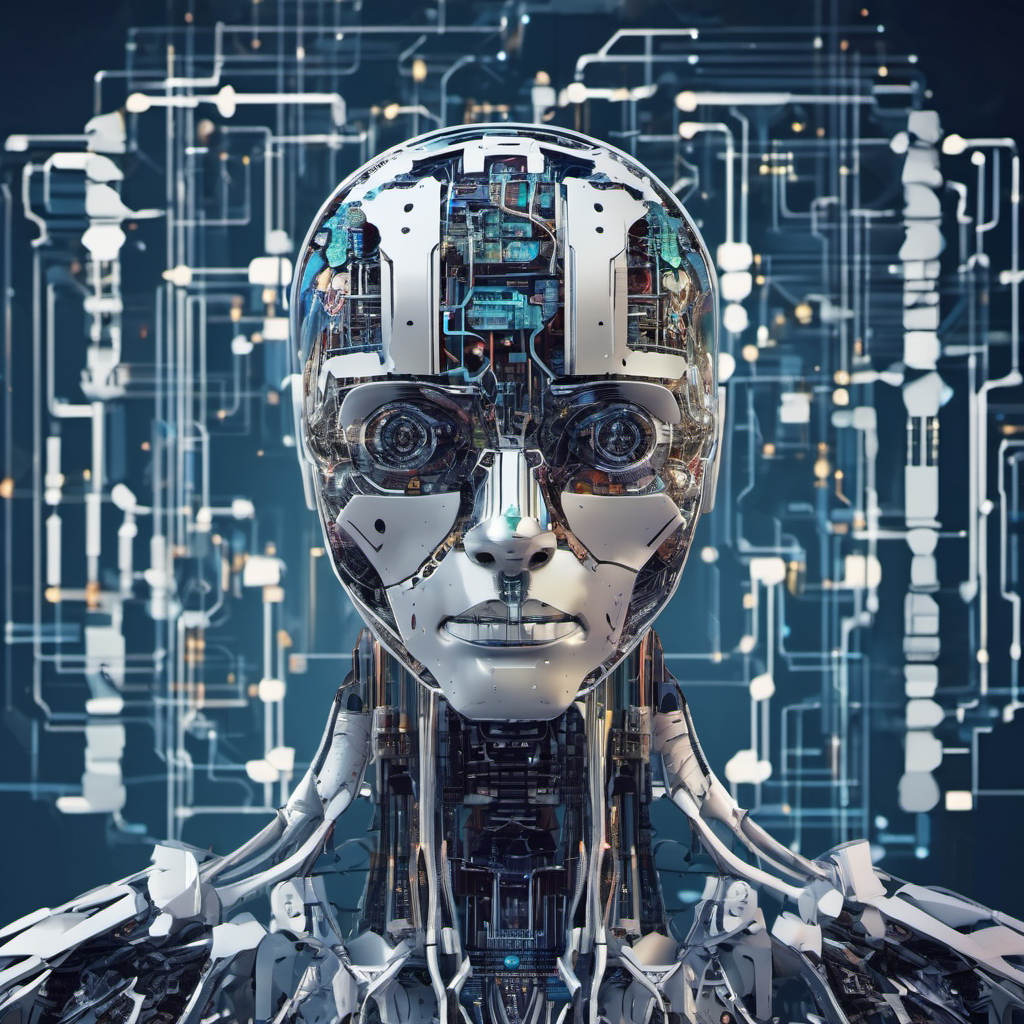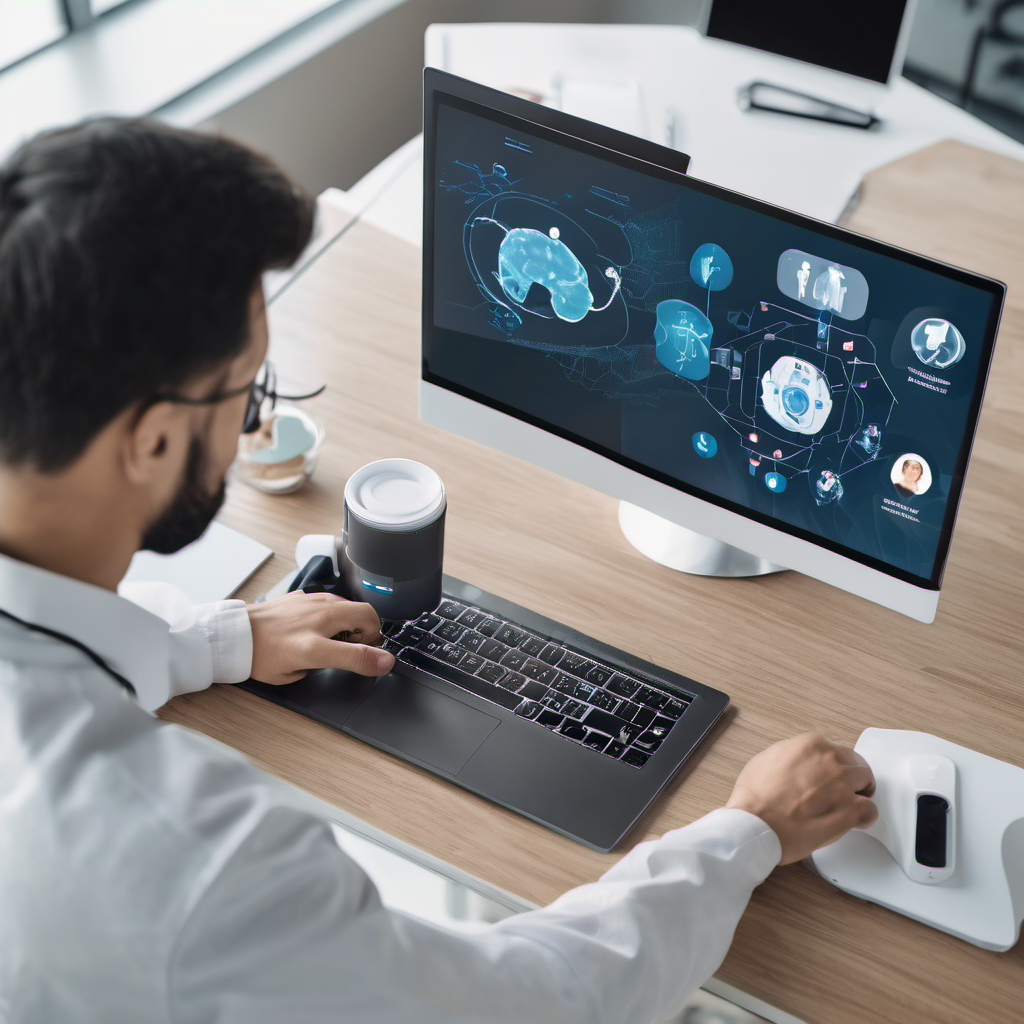Table of Contents
Introduction: Artificial Intelligence (AI)
Artificial Intelligence (AI) is like having a really smart friend who helps doctors make better decisions. In healthcare, Artificial Intelligence is changing the way diseases are found and treated. In this article, we’ll dive into how AI is making a big difference in healthcare, especially in how doctors diagnose illnesses and decide on treatments.
Understanding AI in Diagnosis:
AI is super good at spotting patterns and finding things that humans might miss. That’s why it’s becoming really handy in helping doctors diagnose diseases. Think of it like a detective that sifts through tons of medical information to find clues about what’s wrong with a patient.

For example, Artificial Intelligence can look at medical records, scans like X-rays and MRIs, and even genetic info to spot signs of diseases like cancer, heart problems, or brain disorders. It’s like having a super-powered microscope that can see things doctors might overlook.
Artificial Intelligence isn’t just good at spotting problems; it’s also great at helping doctors make sense of all the data they have. By analyzing symptoms, medical history, and genes, AI can suggest possible diagnoses and treatments, making it easier for doctors to decide what to do next.
AI in Treatment:
Once a disease is diagnosed, AI can help doctors figure out the best way to treat it. It’s like having a really smart assistant that knows all about different treatments and which ones might work best for each patient.
For example, in cancer treatment, AI can analyze tumor samples and genetic data to find the most effective medications or therapies for a particular patient. It’s like having a personalized roadmap for fighting the disease.
AI isn’t just helpful in planning treatments; it’s also making surgeries safer and more precise. Robotic systems powered by AI can assist surgeons during operations, making them less invasive and reducing the risk of complications. It’s like having a steady hand guiding the surgeon to make sure everything goes smoothly.
AI in Remote Monitoring and Telemedicine:

Another way AI is changing healthcare is by helping doctors keep an eye on patients, even when they’re not in the same room. With AI-powered monitoring devices, doctors can track things like heart rate, activity levels, and medication use from afar.
For example, if a patient has a heart condition, AI can monitor their heart rate and send an alert if it goes too high or too low. It’s like having a guardian angel watching over the patient and making sure they stay healthy.
AI is also making it easier for patients to get medical advice and support, even if they can’t see a doctor in person. Virtual assistants and chatbots powered by AI can answer questions, schedule appointments, and provide guidance on managing health conditions. It’s like having a helpful friend you can talk to anytime you need advice.
Challenges and Considerations:
While AI has a lot of potential to improve healthcare, there are also some challenges that need to be addressed. One big concern is privacy – AI relies on a lot of personal data, so it’s important to make sure it’s kept safe and secure.
Another challenge is making sure AI is accurate and reliable. Since it's still a relatively new technology, there's always a chance that it could make mistakes or give the wrong advice. That's why it's important to test AI systems thoroughly and make sure they're working as they should.
Regulation and ethics are also important considerations when it comes to AI in healthcare. It’s crucial to have rules and guidelines in place to make sure AI is being used responsibly and ethically. This includes things like making sure AI doesn’t discriminate against certain groups of people or make decisions based on biased data.
Conclusion:
AI is like a superhero in the world of healthcare, helping doctors diagnose diseases, plan treatments, and keep an eye on patients – all with superhuman accuracy and efficiency. But like any superhero, AI has its challenges to overcome, from privacy concerns to making sure it’s accurate and fair. With careful planning and regulation, AI has the potential to revolutionize healthcare and make a big difference in the lives of patients and doctors alike.
What does AI in healthcare mean, and how does it help people?
AI in healthcare means using smart computer programs to help doctors and nurses take care of patients. It helps by making it easier for doctors to find out what’s wrong with a patient and decide the best way to treat them.
How does AI help doctors figure out what’s wrong with a patient?
AI looks at a lot of medical information, like patient records and test results, to help doctors find patterns or things that might be wrong. It’s like having a super smart helper that can spot problems that a doctor might miss.
Is AI safe and reliable for helping doctors?
Yes, but it’s essential to make sure that AI is tested and checked to make sure it works correctly. Also, rules and guidelines help make sure that AI is used in the right way and doesn’t cause any harm to patients.

